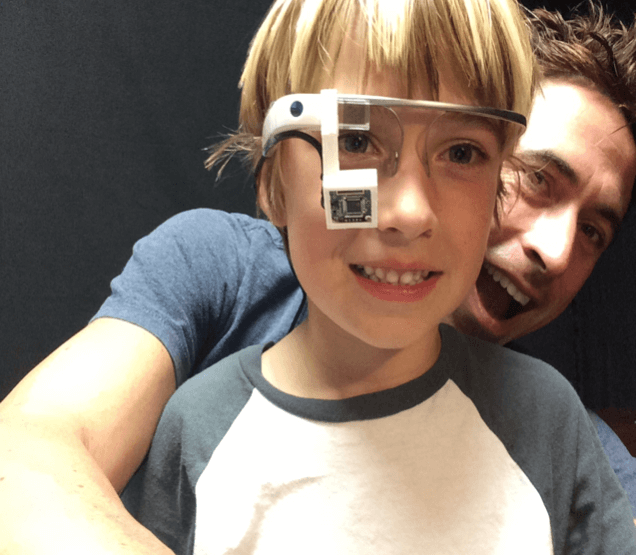Google Glass might be gone from the public eye, but researchers at Stanford University are utilizing the eyepiece in a whole new way.
The Autism Glass Project, a study in which a Google Glass headset, along with an app that ties the eyepiece to a smartphone, helps children on the spectrum recognize and process the emotions of those around the wearer. According to the press release: “We are building a system on top of Google Glass to help people with ASD understand social cues and aid the treatment process of behavioral therapy. Using Glass’s sensors including the camera, head motion tracking, a microphone, and custom‐made add-ons, such as an infrared camera for eye tracking, our software analyzes social interactions of the wearer with other people. The system then gives social cues in real time,for example about facial expressions (i.e. “happy,” “interested,”etc. shown on Glass’s heads-‐up display) and records social responses to analyze them later in behavioral therapy,including the amount and type of eye contact made. This brings behavioral therapy out of the clinician’s office and into natural settings.”
To understand how and why Autism Glass Project works, one must somewhat familiarize themselves with Autism Spectrum Disorder, which encases Autism, Asperger, and Pervasive Development Disorder. According to Deal With Autism, “autism occurs when a child has trouble communicating and understanding what people think and feel. This makes it very difficult for autistic children to respond to gestures, facial expressions, touch and even language.”
The team of researchers at Stanford hope that the Autism Glass Project will be able to provide affordable and convenient therapy that can be done in the comfort of your own homes. If positive results are gained as a result of the study and their subjects, the technology could be available commercially within the next decade.
So, how is it helping children and adolescents right now? Besides spending more time with parents in a therapeutic environment, Stanford University associate professor of pediatrics Dennis Wall says, “We are really seeing improvements in social acuity.”
If you know anyone who would be a perfect fit for the Autism Glass Project, they are taking volunteers between the ages of 6-16.







